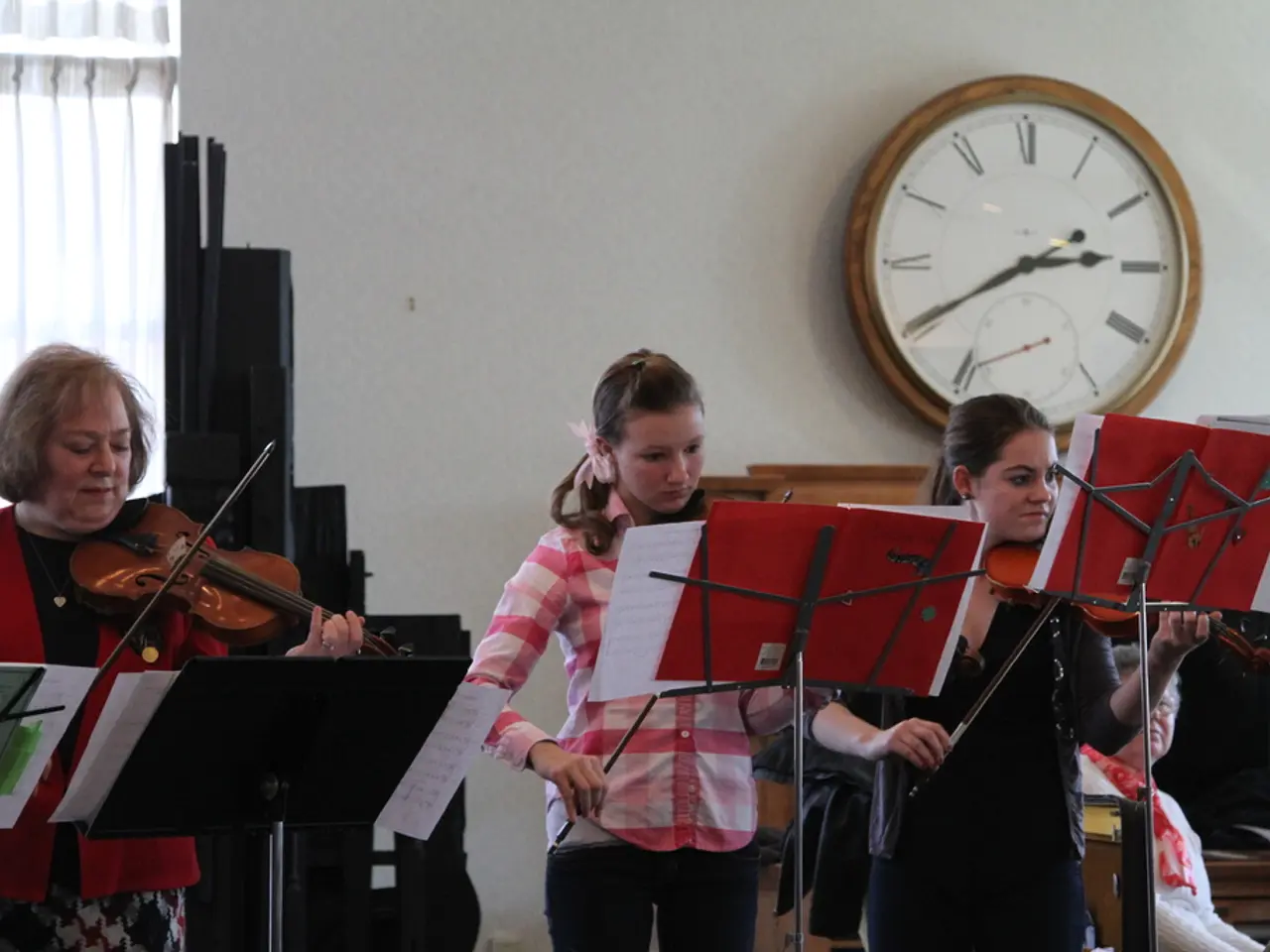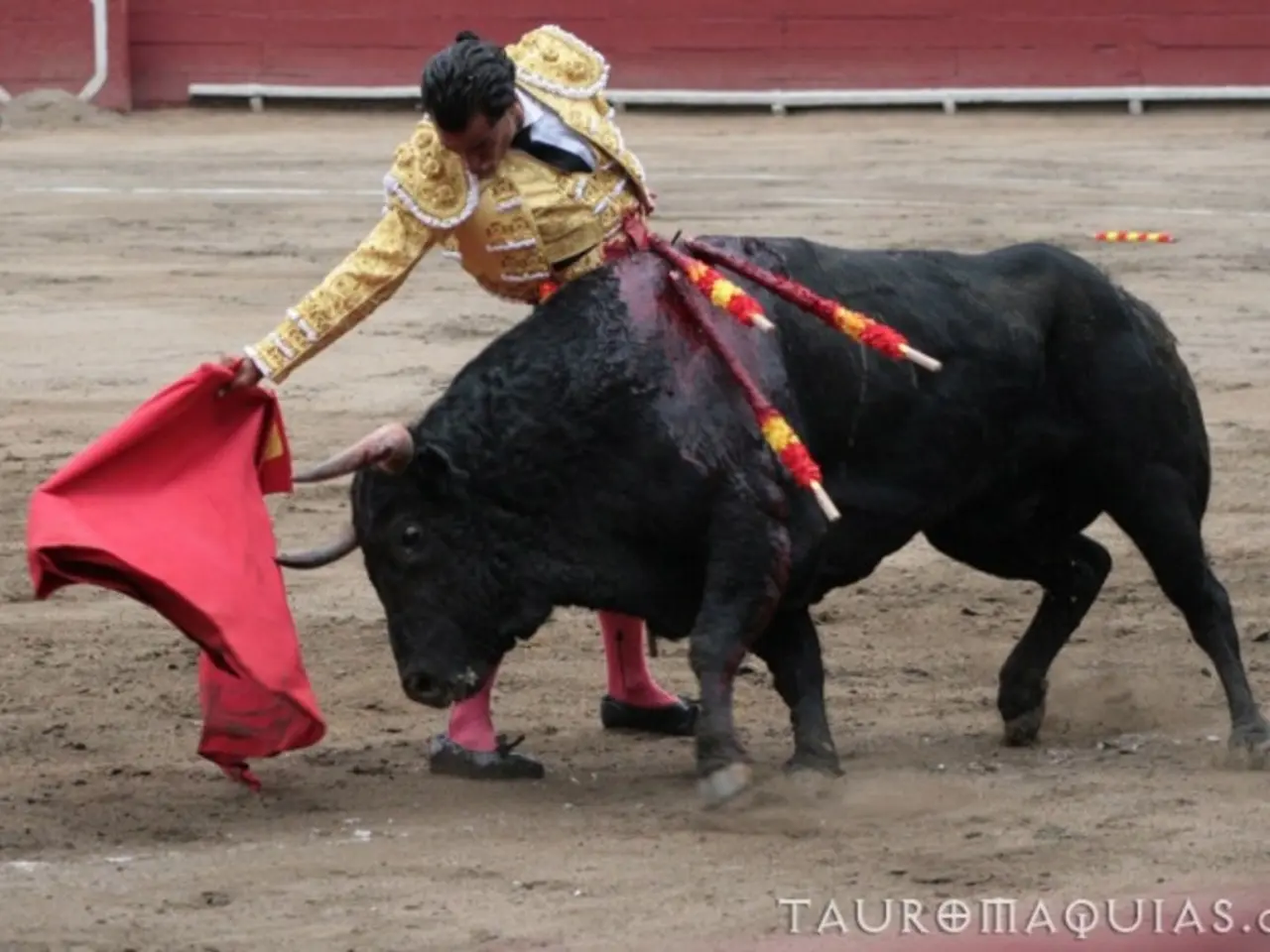Modern Opera Reinterpretation by Jorge Volpi: 'Tristana' Delves into the Pursuit of Liberation
In the heart of Madrid, the "Ópera a quemarropa" festival is set to present a groundbreaking adaptation of Benito Pérez Galdós' classic novel, *Tristana*. Mexican writer Jorge Volpi has breathed new life into this timeless tale, transforming it into a chamber opera that resonates powerfully with contemporary audiences.
Volpi's *Tristana* follows the story of a young woman caught between traditional expectations and her personal desire for freedom. This opera, like its literary counterpart, delves into themes of power relationships, both political and personal, that run through Volpi's literary work. The musical universe is central to this adaptation, with music amplifying the emotional complexity of the characters' struggles.
Tristana, a figure seeking individual freedom after suffering multiple violences, is portrayed as a symbol of resistance. The opera's ending leans more towards the film version by Luis Buñuel, offering a more hopeful conclusion compared to the original novel. This adaptation serves as an act of resistance, emphasizing the enduring struggle for female autonomy and the relevance of the female struggle against patriarchy in today's society.
Volpi's career is marked by the novel and the essay, but he has a strong interest in opera. His passion for the medium is evident in his adaptation of *Tristana*, which he wrote the libretto for. The opera connects with themes of power relationships, both political and personal, that run through Volpi's literary work. Many of the original dialogues from the novel are kept, but adapted to the present, transporting the characters from the 19th century to the 21st century.
The opera's contemporary resonance is evident in its themes of toxic relationships and gender violence. The original text of the novel has a contemporary relevance due to its exploration of these issues, making it a poignant and timely adaptation. After its presentation at the "Ópera a quemarropa" festival, *Tristana* will tour Spain, offering audiences a chance to engage with this powerful adaptation.
In conclusion, Jorge Volpi's chamber opera adaptation of *Tristana* offers a fresh perspective on a classic novel, revitalizing Galdós' exploration of gender, power, and freedom for a contemporary audience. It underscores the enduring relevance of the novel’s themes in light of ongoing societal discussions about autonomy and oppression. The adaptation demonstrates the power of cross-media reinterpretation to highlight and deepen classic literature’s resonance today.
Sports enthusiasts may find solace in the quiet moments that Tristana, symbol of resistance, offers during her personal journey towards freedom. On the other hand, bookworms might appreciate the adaptation's preservation of original dialogues from Pérez Galdós' novel, now transported from the 19th century to the 21st, presenting a timely exploration of power relationships and gender violence in the form of contemporary entertainment.







